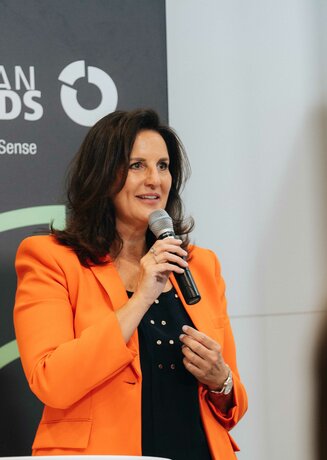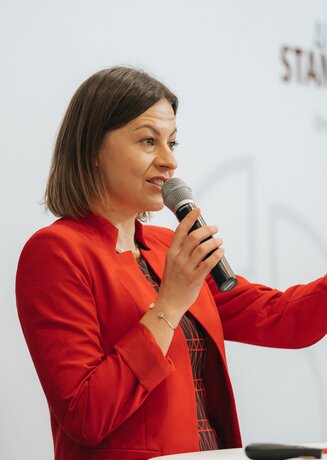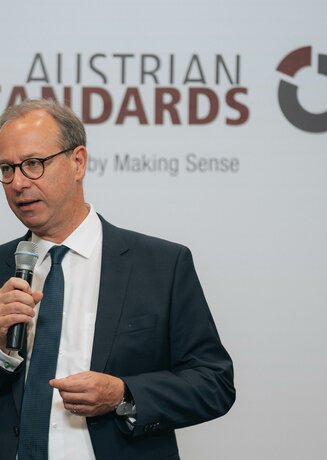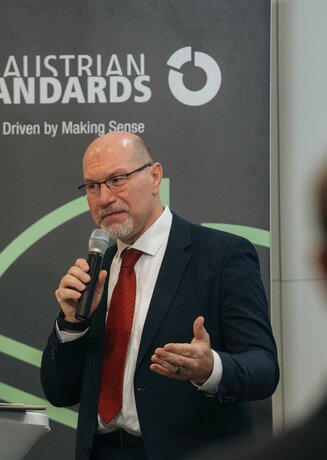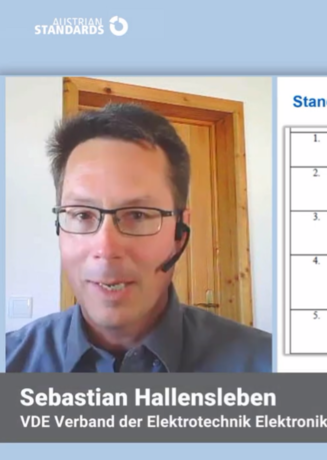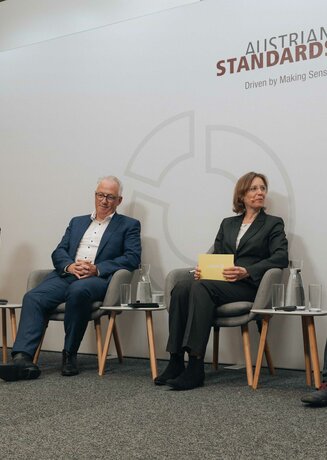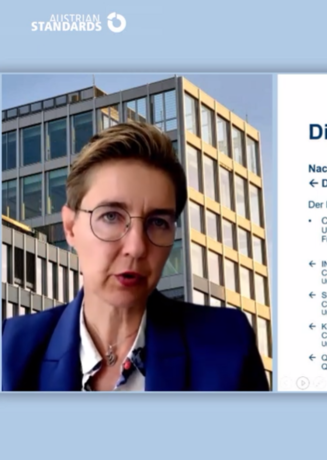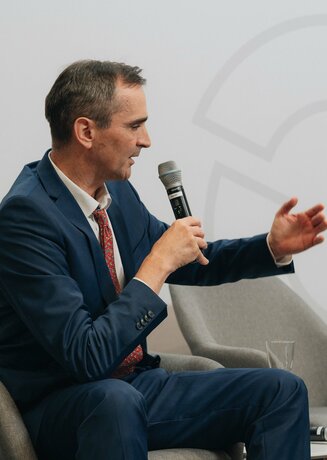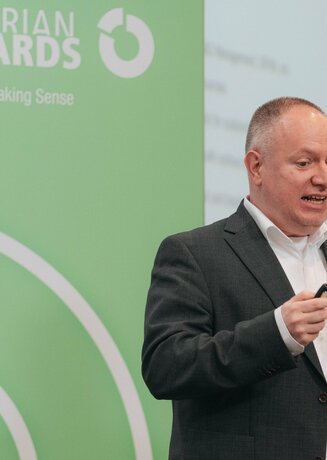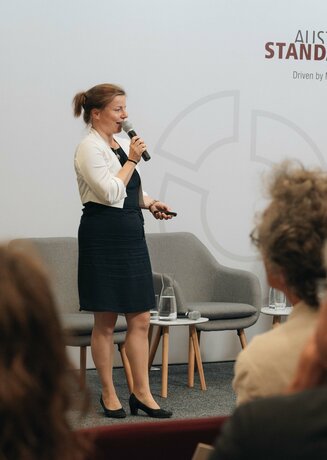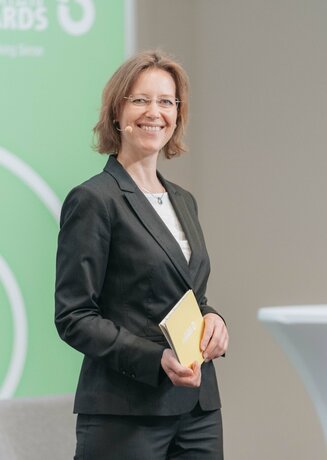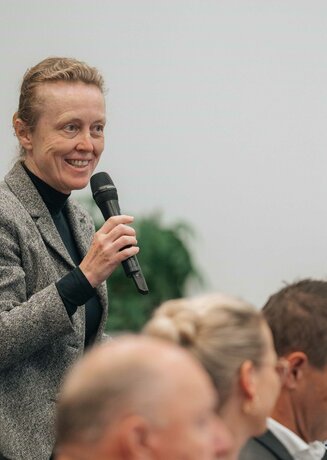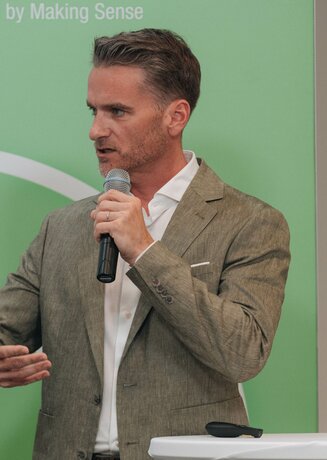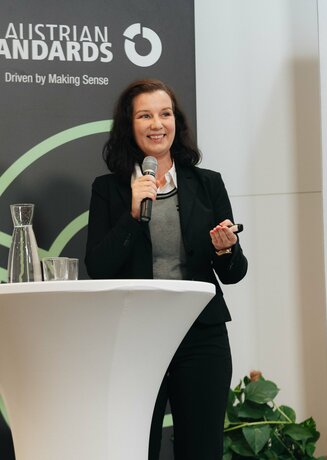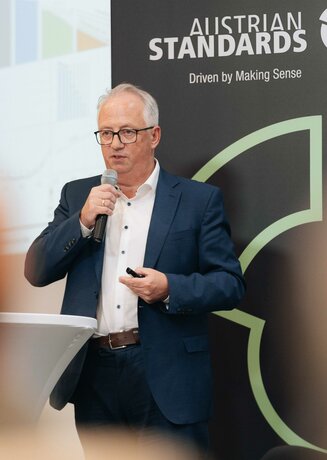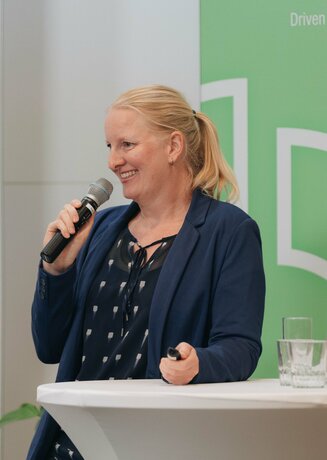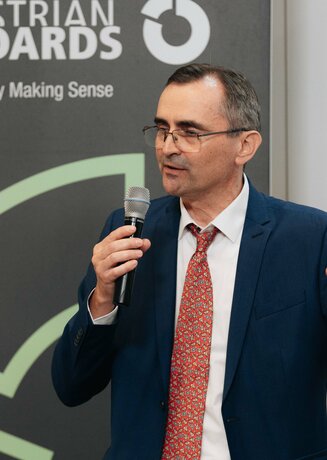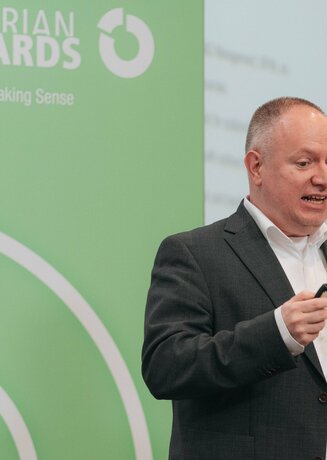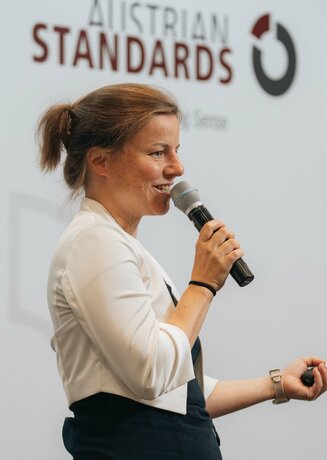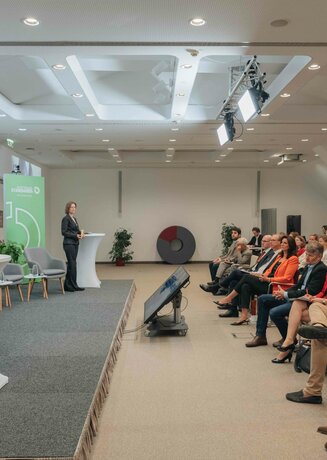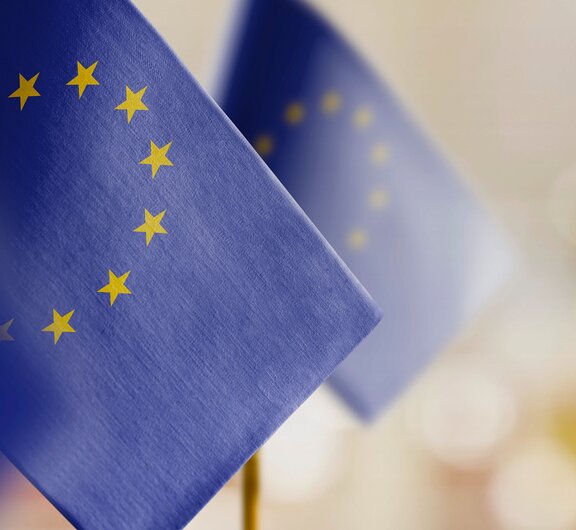
Expert Talks 2024
Experts discussed the impact of the EU standardisation strategy on the European economy and how standards are setting the course as a geopolitical instrument during the Austrian Standards Expert Talks which took place on 12 June 2024.
The EU standardisation strategy, which was decided on two years ago, has brought standards up to a strategic, geopolitical level. They are a key element for ensuring resilient markets and supply chains, as well as the green and digital transformation.
Moderated by Gudrun Ghezzo a well-known panel of experts presented new findings, lessons learnt and expectations for the future when it comes to the EU standardisation strategy.
The strategic importance of standards
Austrian Standards CEO Valerie Höllinger laid out during the greeting that the EU standardisation strategy recognises standards as a driver of innovation, an engine for the economy and progress and as a geopolitical instrument, and has raised standards to a new level. Peter Reichel, General Secretary, Austrian Electrotechnical Association (OVE), was convinced that the standardisation strategy creates the necessary conditions for the European Union to set benchmarks on the international market.
In her keynote speech, Eszter Batta, Policy Officer – Standardisation, European Commission, presented the effects that standards have on practical topics, such as supply chain certainty or cybersecurity. Eszter Batta clearly explained why standards are important as a geopolitical instrument and how they help to retain Europe's leading technical role as well as European values. Initiatives such as the Living Standards Award are important to draw the attention of young, innovative people to the topic of standardisation and to raise awareness amongst the experts of the future.
Strong European standardisation is also very important to Georg Konetzky, Director General, National Market Strategies Department, Austrian Federal Ministry for Labour and Economy. He provided insights into the work of the High-Level Forum on European Standardization. Examples, such as standards regarding hydrogen production or guaranteeing data security, are particularly relevant. Konetzky suggested proclaiming a "Year of standardisation" to further reinforce awareness of the subjects amongst all stakeholders.
Focuses of standardisation work
Franz Ziegelwanger, Directorate General VI - Telecommunications, Post and Mining, Head of Technology – Telecommunications and Post, Austrian Ministry of Finance, reported on work in so-called Sherpa meetings, where the focus is on standardisation. In the near future, work on financing standardisation activities and new workstreams, such as quantum technology and cybersecurity, will take centre stage. All in all, the influence of the EU at international level must be continually strengthened.
Sebastian Hallensleben, Head of AI & Digital Trust, VDE, joined live from Berlin to explain the importance of standards to AI technologies. For AI to make decisions while maintaining fairness and observing basic rights, the EU's AI Act is trend-setting. It is only with the help of specifications and standards that we will be able to group AI systems using classes of transparency or fairness and label them accordingly, said Hallensleben with conviction.
About the benefits of standards in practice
Fernando Moya Cervelló, ESG Procurements Expert, PORR Group, illustrated how many and which factors play a role in ensuring resilient supply chains. Since there are so many risks outside the supply chain, a holistic approach to assessment is needed. Events like the Covid pandemic have made this very clear. Standardised methods of calculation and assessment would help to establish resilient supply chains and, thanks to the pull effect, have a positive impact on sub-suppliers.
Matthias Seeleitner, Head of Strategy & Control for Group Purchases, ÖBB-Holding AG, agreed and also stressed the significance of standardised methods, processes and strategies for the implementation of group-wide activities and work with sparring partners. Generally speaking, compliance with standards would minimise risks and thereby create a competitive edge.
Sebastian Uhl, Research Associate, Fraunhofer Austria, stated that only standardised data can be considered meaningful. In order to be able to run through and assess various scenarios, for example, the resilience of a supply chain, you need to be able to rely on all the data. Standards are also indispensable for companies' obligation to produce supporting documents in order to produce meaningful and comparable reports.
Creating transformation with standards?
The next panel was concerned with expanding the green transformation, circular economy and life cycle assessment. Anna-Vera Deinhammer, Director for Circular Cities & Regions, Circular Economy Forum Austria / Endowed Chair for Real Estate Development, FH Wien der WKW, expressed her conviction that all levels of society must be taken into account for the transformation to a circular economy to be successful. We don't only have to ask ourselves what is feasible from a technical standpoint but also which measures are ethically justifiable. Standards would help with precisely these kinds of integrative processes and would bring together different disciplines.
Sibylle Gabler, Member of the Executive Board, External Relations Division, German Institute for Standardisation (DIN), reported on the advances that have already been made in standardisation for the circular economy. Having established 221 requirements for standardisation, now, roughly 1.5 years later, work is being undertaken to implement and prepare industry-specific standards. The example of the circular economy shows that standards can provide practical solutions for attaining political goals.
Helmut Leibinger, Head of the Net Zero Emission Team & Head of Systems and Process Engineering, ROHRDORFER ZEMENT GmbH, clearly demonstrated the importance of the transformation to a circular economy for companies using the goals defined by the EU. So, with the end of certificate-based emissions trading in 2040, industries emitting a certain threshold of CO2 need to start working on new solutions right now. The conversion of CO2 into formic acid, which can be used as temporary storage, for example, is proving to be very promising.
Hanna Schreiber, Head of Expert Team; Senior Expert Carbon Management and LCA, Environment Agency Austria, supported clear requirements of products in the form of product category rules. She criticised the fact that different methods of assessment are possible in the EU specifications, which are often not comparable. Schreiber believes that there is still a lot of work to be done in terms of harmonisation.
Potential of standardisations in research and education
In the panel that followed, Gerald Kern, Head of the European and International Programme Division, Austrian Research Promotion Agency (FFG), and Alfred Radauer, Head of the Institute Business Administration and Management, IMC University of Applied Sciences Krems, spent some time discussing the topic of further education in standardisation activities. They shared the opinion that standardisation is still seen as a side issue at most universities and colleges. Gerald Kern, however, noted that standards are already required in tender submissions for EU research grants because confidence amongst investors cannot be achieved with standardised processes and because the research findings can only make the leap from research to practical use with standards. Alfred Radauer is convinced that interest in and awareness of standardisation needs to be increased in schools and universities.
Last but not least, Elisabeth Christen, Senior Economist, WIFO, gave an outlook with regard to the current political situation in the EU and around the world. She is certain that the challenges of the last few years will not fundamentally change. Climate change, digitalisation and the green transformation won't just challenge the economy and society, but also promote innovations and clever solutions. Christen is convinced that standards, as regulatory instruments, will continue to be hugely important for overcoming challenges.
